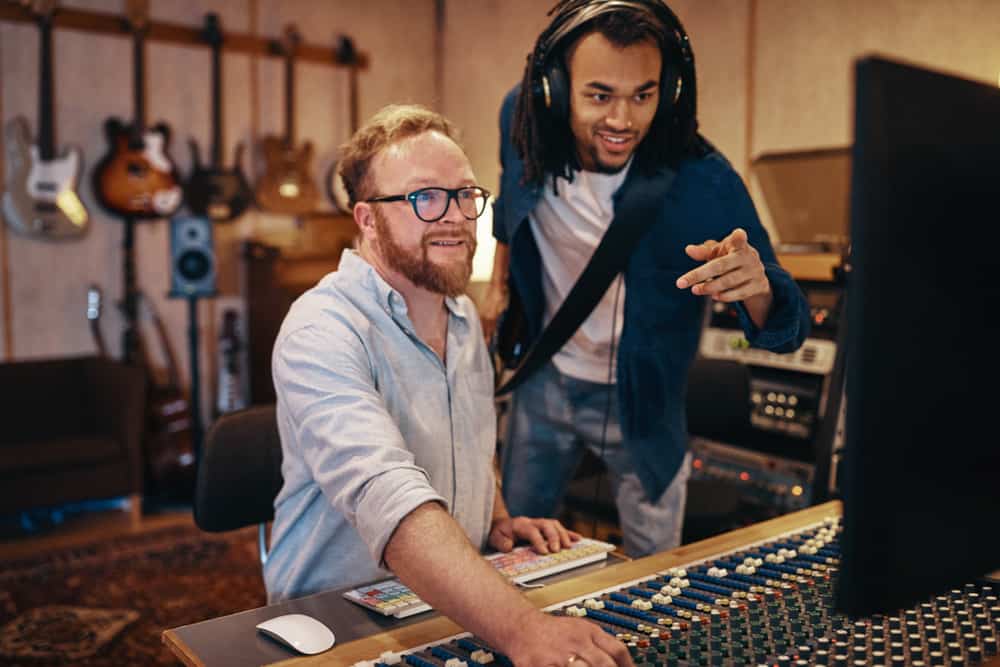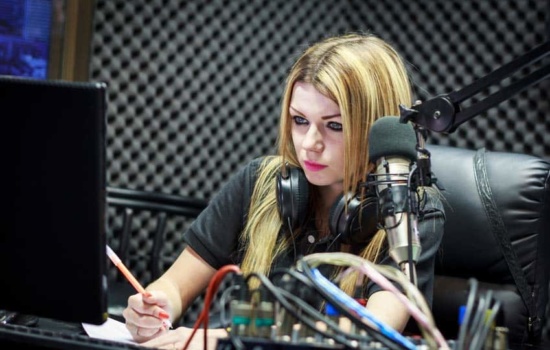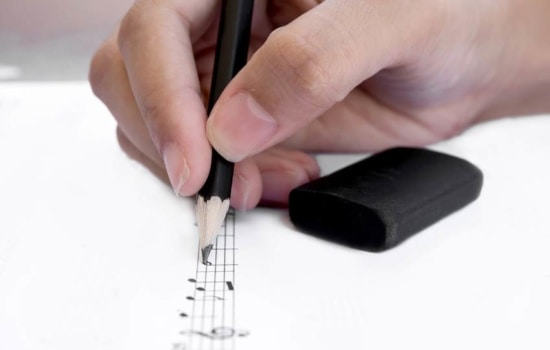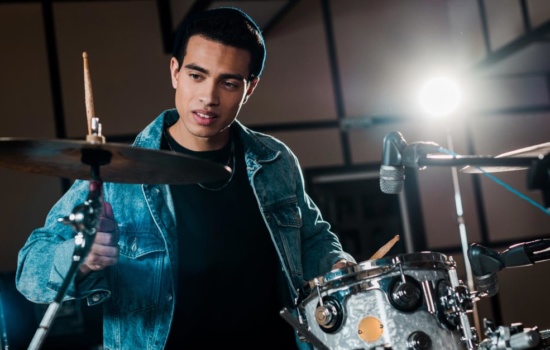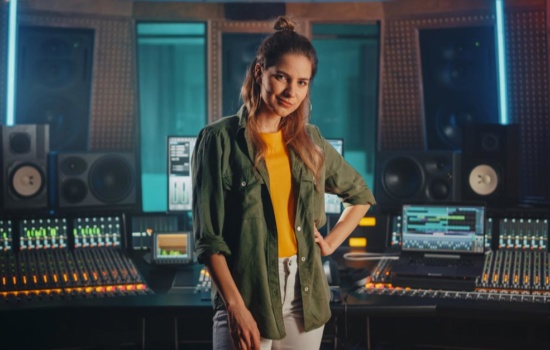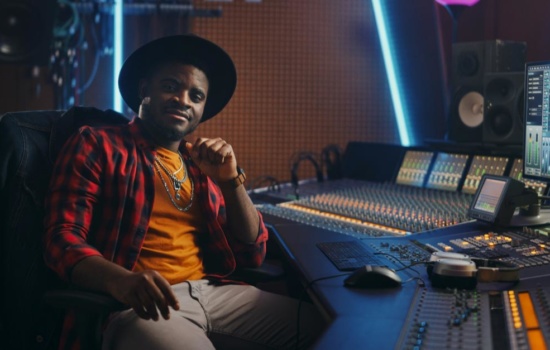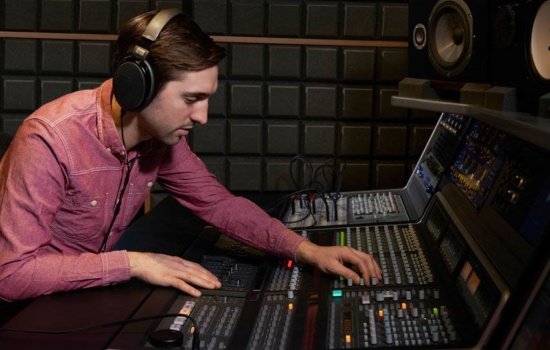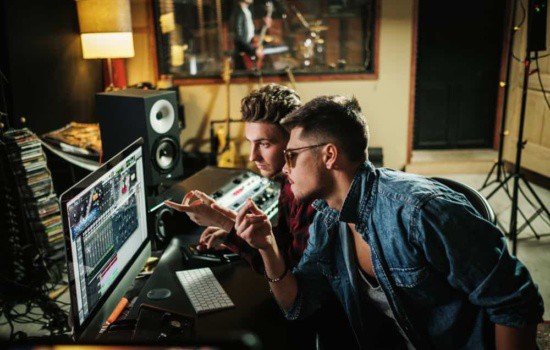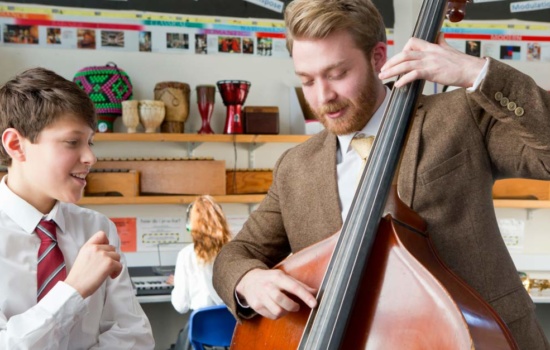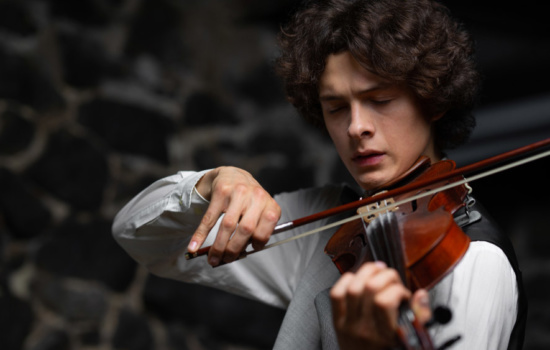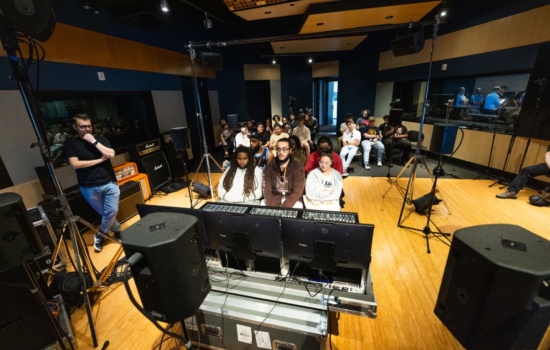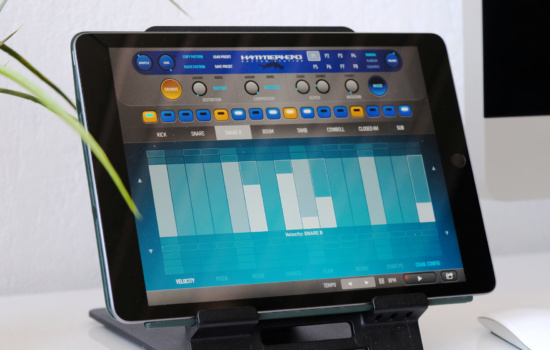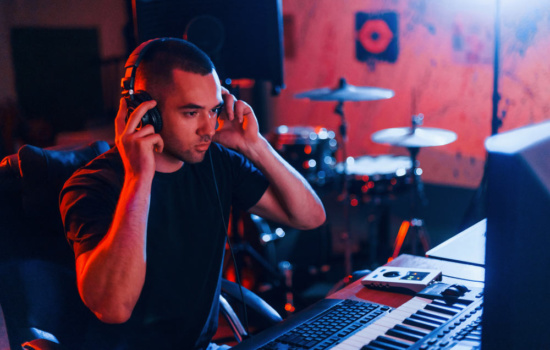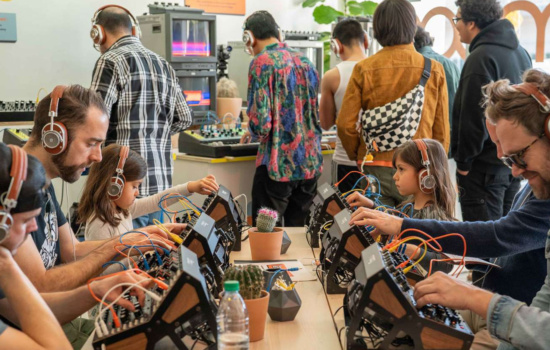“Audio production” is often used interchangeably with “music production,” but they’re actually different things. Audio production is when someone records audio and edits it to make it sound a certain way.
So, what is the difference between audio production (or engineering) and music production?</strong?
Well, for example, an Audio Engineer — the person who’s at the mixing board during a recording session — is performing audio production. They’re in charge of choosing and positioning the mics, ensuring the sound is captured accurately and making sure everything sounds high quality. A Mixing Engineer is also involved in the production process, and so is the Mastering Engineer.
Although you might think these people aren’t the creative types who are making production choices, that’s not totally true. The sound of an acoustic guitar can change drastically depending on how the Engineer sets up the mic. The Mixing and Mastering Engineers have to decide what mastering plugins and effects to use based on how they think a song should sound.
That brings us to the person who gets much of the credit (often due credit) for the creativity in a recorded song: the Music Producer.
Music production deals with how the song flows, what instruments are involved, and how to bring out the strongest emotion in a recording. Music Producers are not the only ones who do music production — Artists, Songwriters, and Composers also have a huge say in how to record their songs.
So “music production” fits under the umbrella of “audio production.”
How do I get into audio production?
The best way to get into audio production is to just start doing it. Experience is one of the best ways to learn, and anyone with a little bit of money can get started. All you need is a laptop, a decent microphone, an XLR cord, and an affordable audio interface. From there, you can learn the basics from the internet (like this post!). Then just start recording your own audio, whether that’s music, sound effects, a podcast, or whatever you’re interested in.
